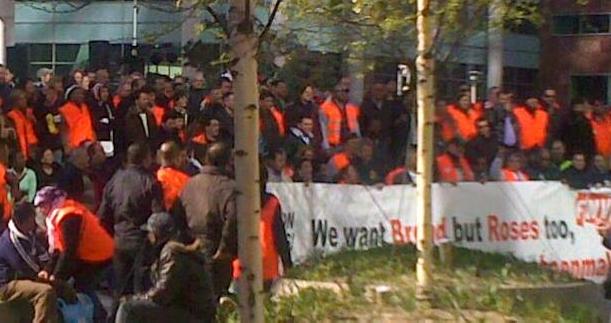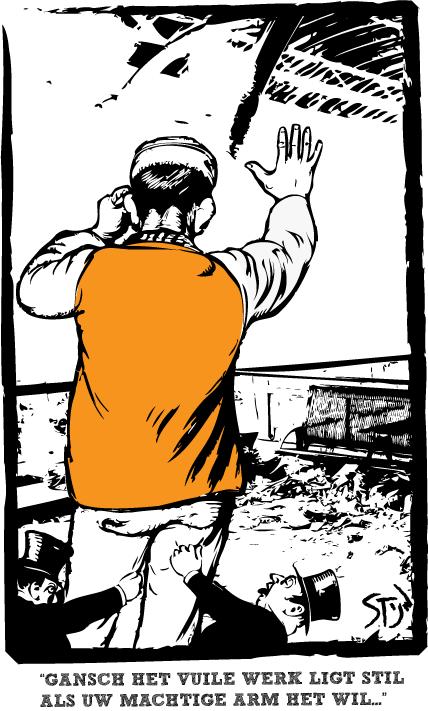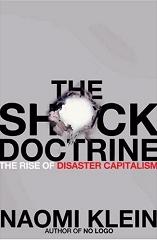
“We want bread but roses too.”
I see Jay Vos has already linked to the news about the cleaners strike, commenting on my previous post on the subject. The longest strike in Dutch history since 1933 ended in a well deserved victory for the cleaners yesterday. A binding agreement between the unions and employers has now been reached, which will see all cleaners recieve a 3,5 percent wage increase over two years, an added bonus for union members and strikers as well as free language lessons during working hours for those cleaners with limited knowledge of Dutch. It’s great news and proof that unions are still relevant and necessary, can do more than perfunctorily defend rights build up decades ago.
The cleaners strike then is an important watershed in union militancy, providing a direction for future struggles:
- Cleaning has been outsourced by most companies and government organisations and hence competition is now completely price driven — despite talk from some customers about ethical handvest and sustainable contracts and all that at the end of the day bullshit talks and money walks.
- Labour is responsible for at least eighty percent of the total costs of cleaning, hence there’s huge pressure to keep labour costs as low as possible, by keeping wages low and targets high.
- And since cleaning is “unskilled” work, largely unattractive to anybody with better options (how many students clean office buildings as a summer job) it’s mainly people who can’t find other work, or don’t have the right education, or can’t work regular hours because of other responsibilities (children), including many (recent) immigrants. Union participation therefore is low as well.
- Unlike the traditional union role therefore, the FNV had to be pro-active: actively recruiting new members while immediately campaigning with limited resources to improve working conditions. The unions had to prove themselves to the workforce.
- They did this with targeted campaigns. Last year it was cleaning strikes at Schiphol airport; this year it was a general strike, but again set up to have a miximum impact with minimal resources. In total there were less than a 1,000 strikers or so (not all union members either) on a total of 50,000 or so cleaners nation wide.
- So the strikers targeted highly visible customers like Schiphol and the railways, as well as semi-govermental organisations like the UWV (social security benefits). For example, they held a public sitdown strikes in Utrecht Centraal railway station, which is the busiest in the Netherlands. And it worked: public sympathy was high and remained high for the strikes, while the effects of the strike became increasingly noticable as it continued.
- In a broader context the effect of the victory is benificial not just for the cleaners, but for the unions and workers as a whole. It showed the power of the unions without them coming across as bullies, which is often difficult to avoid in a hostile media environment. For once the unions were also on the offensive rather than the defensive and success here will make it easier to gain victories elsewhere.

